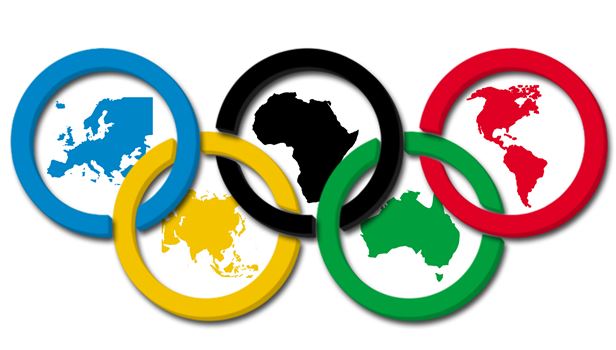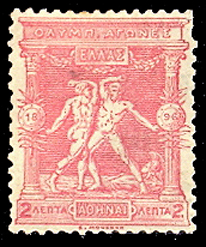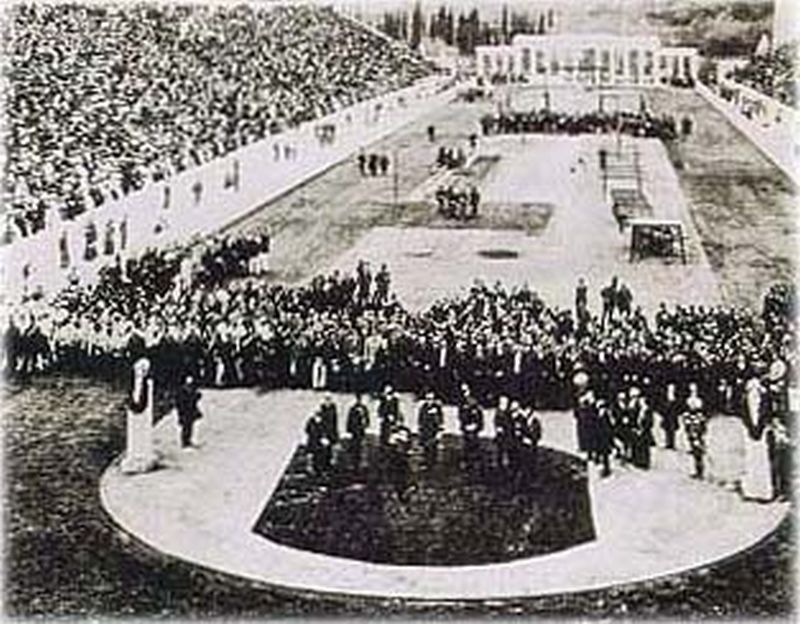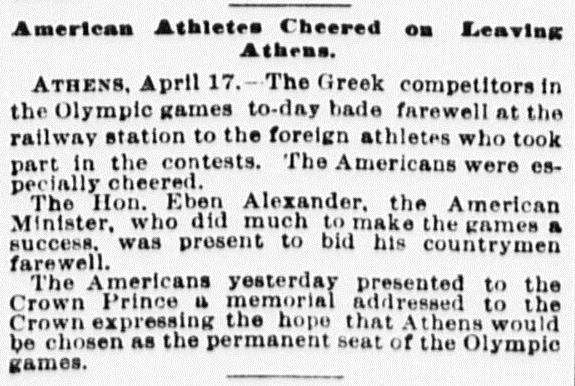
Olympic fever is going strong right now, with the Summer Games in full swing in Rio. There’s something wonderfully ironic about lounging on a sofa, chowing down on Cheetos, and staying up past one’s bedtime (making the next-day’s early-morning walk unlikely) in order to watch dedicated athletes strain every muscle and sinew to earn the designation of Olympic champion. But hey, there’s no judging here. Pass me the Fritos. *wink*
Most of us learned in school that the Olympic Games go way back to the 8th century B.C. Of course, it hasn’t been going on continuously since then. There was a lengthy dormant period after the Romans invaded Greece, which pretty much lasted until the Greek war of independence from the Ottoman Empire in the early 19th century. The Olympic Games were revived in fits and starts during the 19th century, but really didn’t have any momentum until 1894, when the first International Olympic Committee (IOC) was formed, sports societies in eleven countries were courted, and the host city of Athens was selected for the 1896 Summer Games. The Greeks in particular were delighted, and the Greek royal family gave their blessing.
Except…it almost didn’t happen.
Greece during this time was suffering from financial and political instability. The position of prime minister alternated frequently between two men during the last decade of the century, and the IOC was so over budget that the committee predicted the cost of hosting the Games would be triple the original estimate and therefore impossible to raise. Members resigned.

Enter Crown Prince Constantine, who assumed the presidency of the IOC and put out an appeal to the Greek public for money. Between royal donations, public contributions, the sale of commemorative postage stamps, and ticket sales, they were able to come up with the needed funds.
There were still penny-pinching measures, of course. The swimming events had to be held in the cold Bay of Zea because Greece couldn’t afford to build a stadium swimming pool. The sailing races were canceled because not all of the boats had proper embarkation points available. There was no Olympic Village for athletes (the first one was 1932). Competitors had to find their own lodging.
Other interesting bits of info about the 1896 Summer Games:

- Female athletes were excluded from the 1896 Summer Games (they began competing in the 1900 Paris games). One of the organizers of the 1896 Games said that the inclusion of women competitors would be “impractical, uninteresting, unaesthetic and incorrect.” In spite of the ban, Greek runner Stamata Revithi ran the marathon course the day after the men’s race. Officials wouldn’t allow her to finish inside the stadium, nor did they otherwise recognize her achievement in any way (she had collected signed affadavits as to her start and finish times). You can read more about her here. As a side note, the United States has this year brought the largest contingent of female athletes (292) to Rio, and the women outnumber the men (263).
- We are accustomed to gold, silver, and bronze medals for first, second, and third place. At the 1896 Games, first-place finishers were awarded a silver medal, olive branch, and a diploma, while second-place received a copper medal, laurel branch, and a diploma. Nothing for third place.
- Athletes weren’t officially sponsored by their nation of origin back then. Historical accounts conflict as to the exact number of countries represented. The estimate is 11-14 countries.
- 241 athletes competed. Amateur status was required.
- There were 43 events, spanning 9 sports.

Are you following the 2016 Olympic Games on television? Do you have a favorite sport? I’d love to hear from you.
Until next time,
Kathy



Thanks, as ever, Kathy, for this really interesting information. There’s so much of that that I didn’t know. It’s hard to believe that the Olympics has changed so much from those days. This year, there’s even a Refugee team. It makes me wonder what’s in store for the games in the future.
I was really struck by the refugee team, too. It makes sense that the Olympics would reflect the world that populates and watches it. Great to see how it has evolved! Thanks so much for stopping by, Margot. 🙂
I am retired for the first time since previous summer olympics. I t is so great to be able to watch any time of the day! Sad to say I normally fall asleep before late evening events are held. Enjoy swimming, diving, gymnastics, biking, volleyball??? and just about any of the events and most especially the info given about the olympics and athletes history.
Thanks for the article, enjoyed learning something new.
Sounds great, Ann – enjoy your retirement! So glad you could pay a visit!
Fascinating! Thanks for sharing this, Kathy. I love hearing about the history of how things got started.
And I love that there is a refugee team this year.
I think it’s a great idea, too, though kind of sad that it’s needed. I’ll have to go back and check to see how the refugee team did. I lost track of that stuff while on vacation. Thanks for visiting, Kass! 🙂
I am always interested in the Olympics but only certain sports. I will rarely stay up really late to watch the competition, though. Can you say DVR? I usually watch the medal counts but don’t make it a practice to skip other things in order to watch the Olympics.
That said, I love women’s gymnastics (not so much men’s) and in particular rhythmic gymnastics (as opposed to the ones with apparatuses) and diving the best. In the winter I like ice skating (couples is my favorite) and bobsledding. I sometimes watch skiing, too.
Your historical information is very interesting. I love that Constantine petitioned the people for money to sponsor the games. How cool is that? Wonder how many people nowadays would contribute (besides big corporate sponsors, I mean)? Just goes to show, where there’s a will, there’s a way.
Patricia Rickrode
w/a Jansen Schmidt
I’ve been on vacation and just got back to my blog…sorry for the delay! I like a lot of the same events as you do, Patricia. Somehow I missed the rhythmic gymnastics this year, boo. I’ll bet that was neat to watch.
Thanks so much for stopping by!